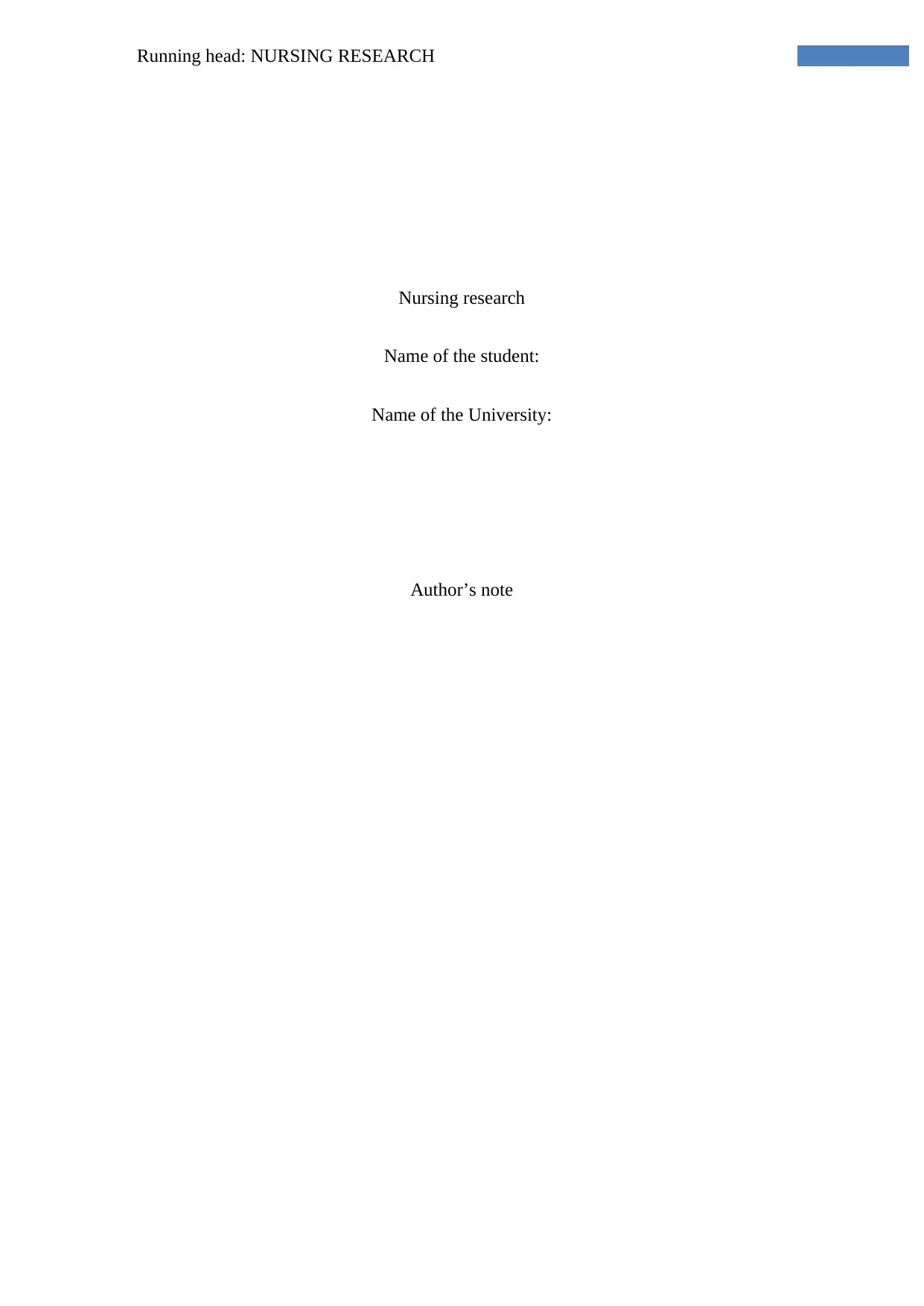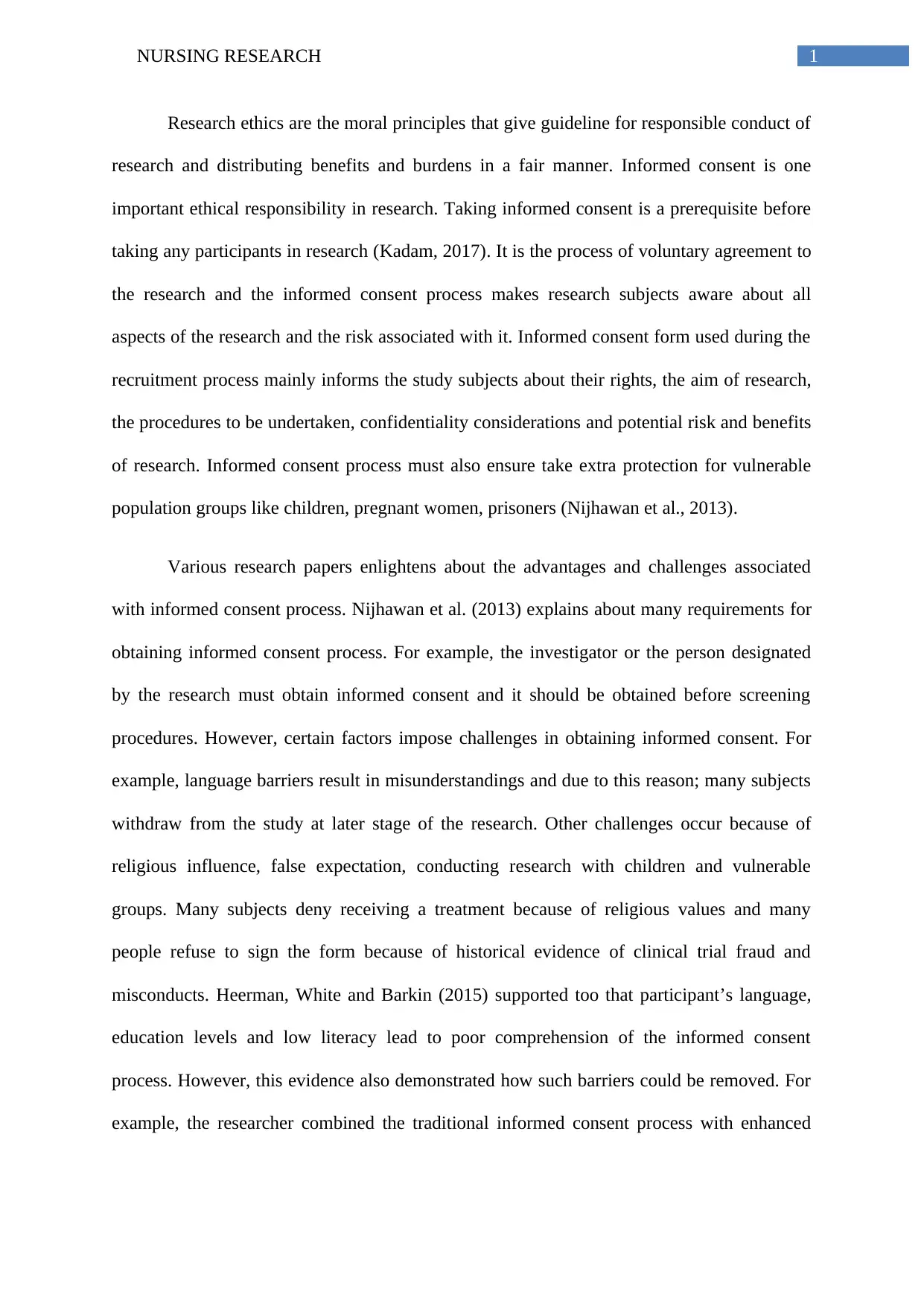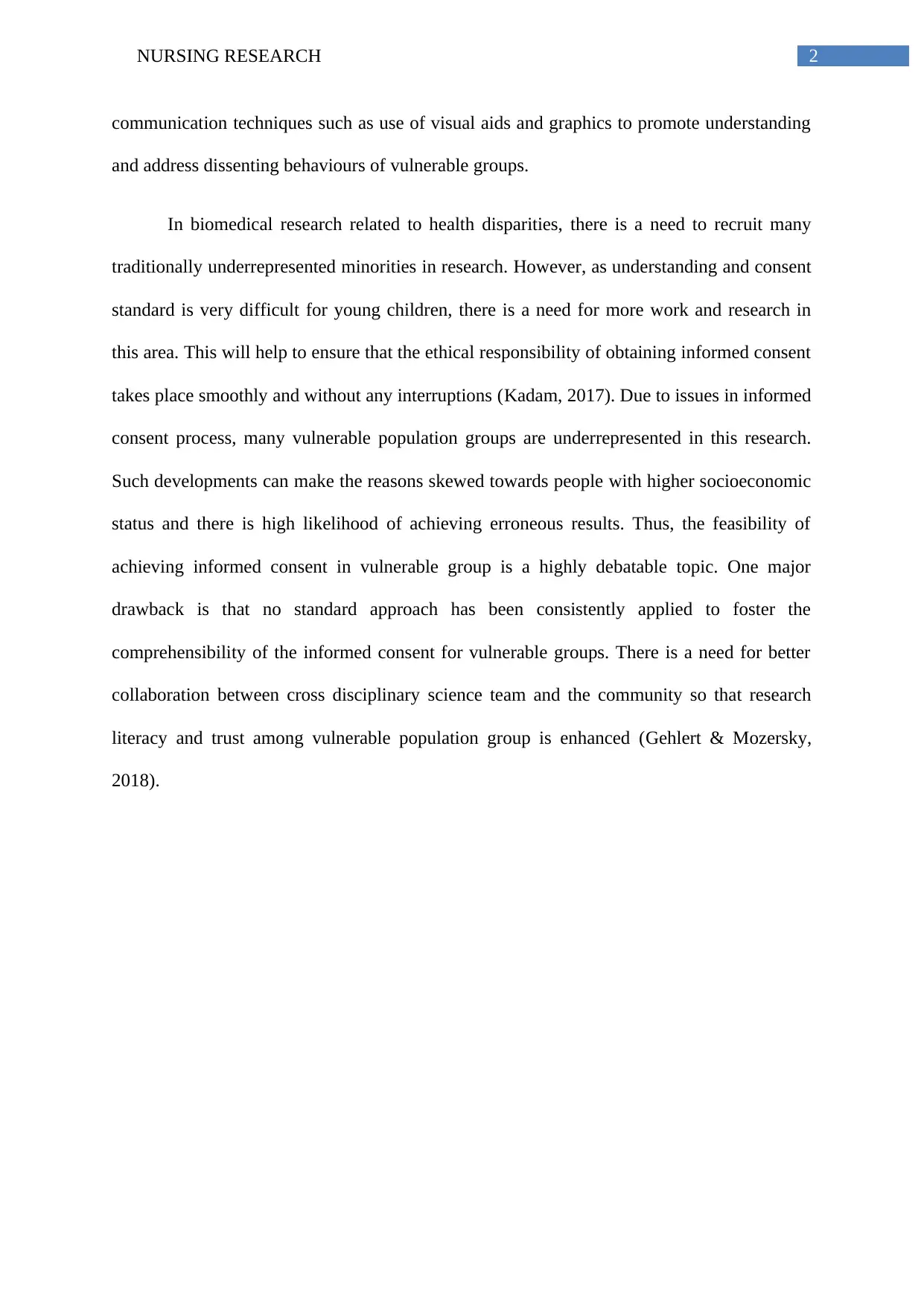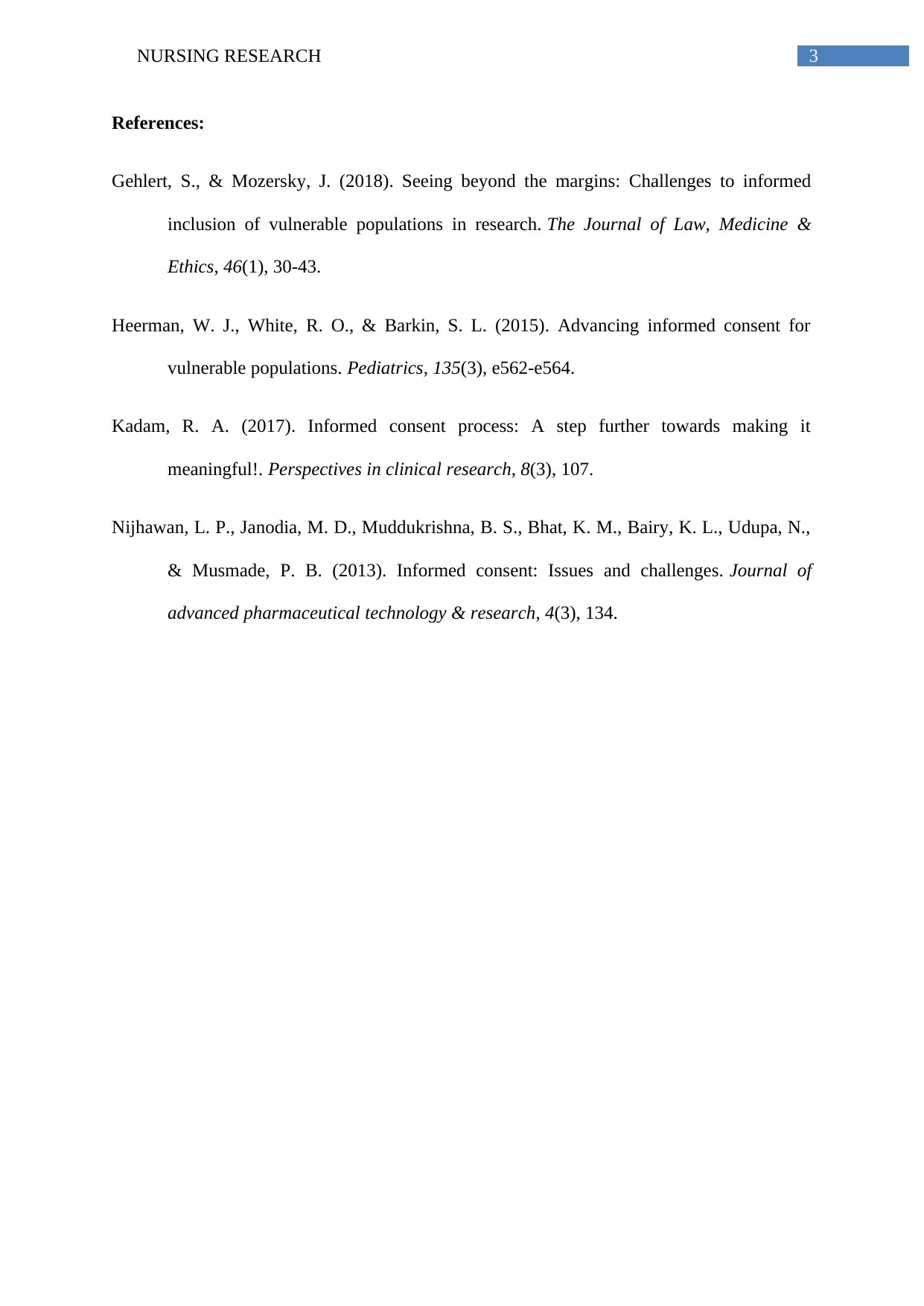Nursing Research: Informed Consent in Vulnerable Groups
VerifiedAdded on 2022/08/27
|4
|762
|19
Report
AI Summary
This report examines the ethical concept of informed consent within the context of nursing research. It defines informed consent as a prerequisite for research participation, emphasizing the importance of voluntary agreement and participant awareness of research aspects, risks, and rights. The report highlights ethical responsibilities, including protecting vulnerable populations like children and pregnant women. It discusses challenges such as language barriers, religious influences, and low literacy levels, which can hinder comprehension of the informed consent process. The report references several studies that support the need for enhanced communication techniques and collaboration to improve research literacy and trust among vulnerable groups, ensuring that ethical standards are maintained and that research findings are not skewed due to underrepresentation of specific populations. The report concludes by emphasizing the ongoing debate about achieving informed consent in vulnerable groups and the need for standardized approaches to foster comprehension and improve the overall ethical conduct of research.
1 out of 4










![[object Object]](/_next/static/media/star-bottom.7253800d.svg)